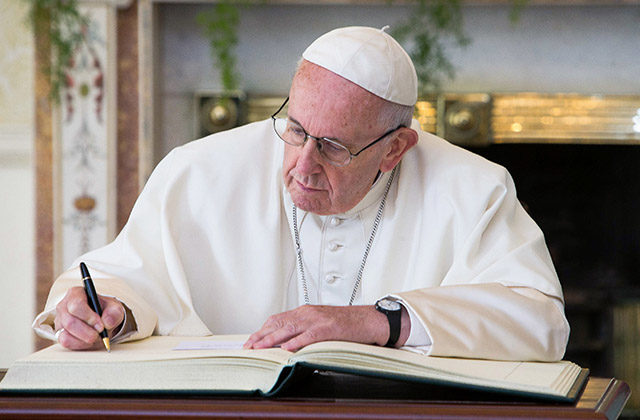
Pope Francis (Vatican Media/Handout via REUTERS)
Uganda Christian News has learnt that Pope Francis, the head of the Catholic Church and sovereign of the Vatican City State, has officially approved a change to the Lord’s Prayer.
As this website reported in December last year, the pontiff observed that the phrase, “lead us not into temptation,” is not a good translation, hence calling to replace those words with “do not let us fall into temptation.”
The phrase appears in both Matthew 6:9-15 and Luke 11:2-4.
Pope Francis said France’s Roman Catholic Church was now using the new wording “do not let us fall into temptation” as an alternative, and something similar should be used worldwide.
Well, the changes are now official, US Catholic reported on Monday.
Also, the Gloria, which begins “Glory to God in the highest. And on earth peace to men of good will,” has changed from “Peace on earth to people of good will” to “Peace on Earth to people beloved by God.”
“On May 22nd, 2019 during the General Assembly of the Episcopal Conference of Italy, President Cardinal Gualtiero Bassetti announced the approval of a third edition of the Messale Romano. The revised translation will include changes to the Lord’s Prayer and Gloria,” US Catholic wrote.
“The upcoming change has received confirmatio from the Congregation for Divine Worship and Discipline of the Sacraments, recognition of the decisions made by bishop’s conferences. In the upcoming months the 3rd Edition of the Messale Romano will be printed and available for use,” it added.
According to CBN News, the Pope believes the new version is better because the first translation implies that God leads people into temptation, an action that is against his nature as a good and holy God.
“A father doesn’t do that, a father helps you to get up immediately,” Francis said of the line in question. “It’s Satan who leads us into temptation, that’s his department.”
In all this, individuals who oppose Pope Francis’s changes to the Lord’s Prayer believe there is no evidence to suggest the Greek translations of the prayer were inaccurate.
In fact, they say, the Early Church had high standards for the Gospels, and only selected texts with a direct connection to eyewitnesses.

